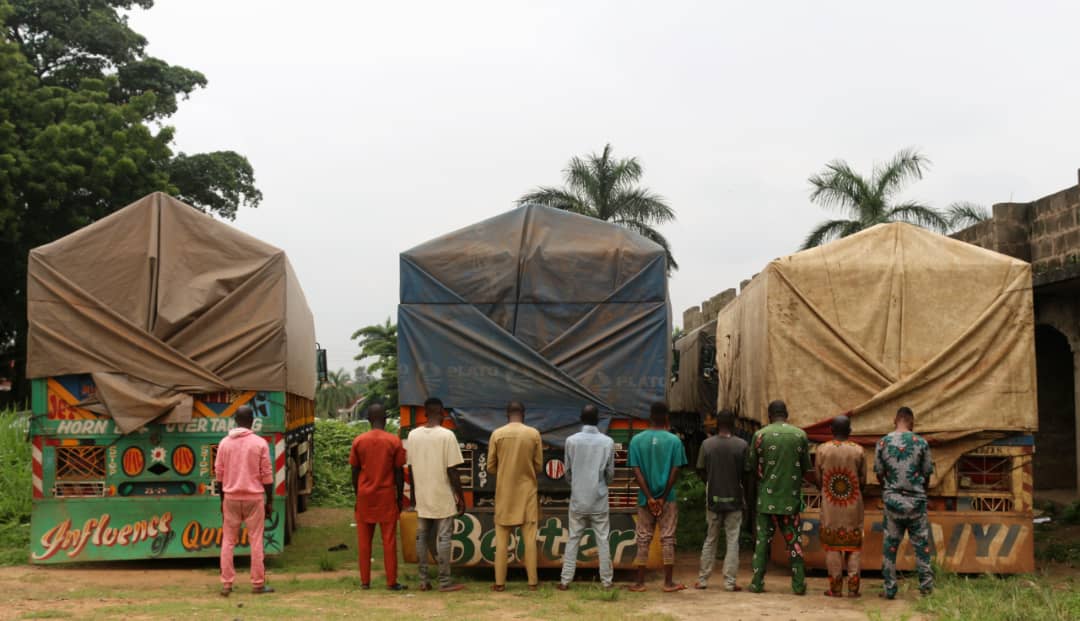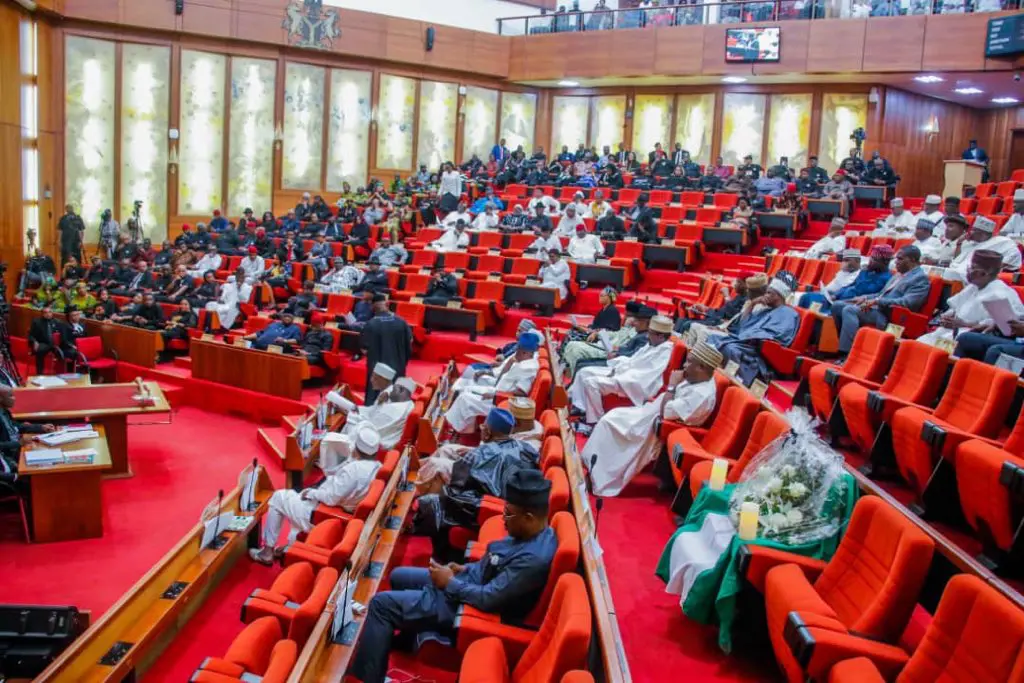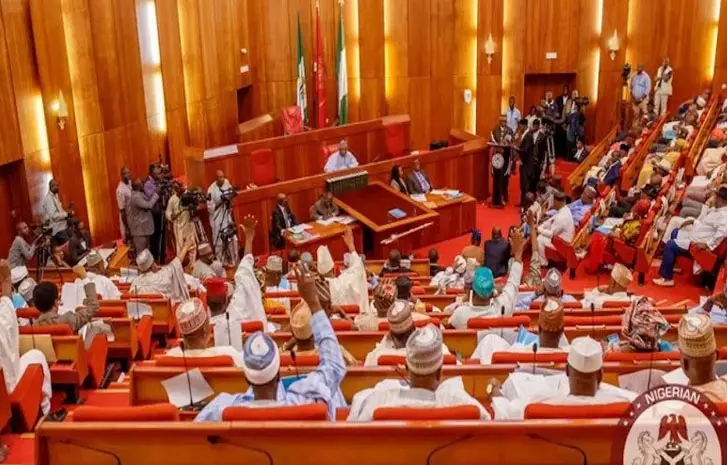Nigeria Breaking News
Panic, Confusion as Count Down to The Deadline For Nigerian’s New Naira Notes Nears

Across the country, Nigerians are living in uncertain times regarding their money, both the cash at hand and the one they have saved in the banks as the Central Bank Governor, Godwin Emefiele insists that the January 31st deadline for the usage of old currency notes remains sacrosanct.
“As things stand, the N200 denomination is scarce. We rely a lot on N200 notes, but we don’t have it. I still have lots of N200 in my box,” Dolapo Michael, a trader in Yaba area in Lagos State, told DAILY POST.
Mrs Michael’s predicament is not in isolation as many Nigerians are faced with uncertainty over the latest policy by the CBN. While the apex bank insisted that the policy is targeted at mopping up cash into the banking sector, however, it has become a political issue.
Bola Tinubu, the presidential candidate of the All Progressives Congress (APC) at the party’s campaign rally in Abeokuta, the Ogun State capital, alleged that the policy was targeted at him.
The two chambers of the National Assembly also asked the CBN to as a matter of urgency extend the period by 6 months; however, the CBN boss insisted that there shall be no extension.
Even the threat of a warrant of arrest has not swayed the CBN boss as he shunned the invitation of the House on two occasions.
The lawmakers are insisting that section 20 of the CBN Act mandates commercial banks to continue to accept the old notes even after the expiration of the deadline.
“The House is also aware that Section 20 (3) Central Bank of Nigeria (CBN) Act mandates the CBN to redeem the face value of the recalled currency upon demand, even after the expiration of the notice of recall. Notwithstanding the deadline imposed by the Central Bank of Nigeria(CBN), this House will see to it that this provision of the law is honoured in full,” Femi Gbajabiamila, the Speaker of the House said on Thursday.
However, banks have insisted that they will comply with the directive of the CBN on the subject matter.
On Friday, First Bank announced that it will no longer accept the old notes by 1st of February, therefore, urging its customers to take advantage of the weekend to deposit their old currency.
“This is to notify the general public that all our branches will be open on Saturday and Sunday just to receive cash.
“All old Naira notes of series 200, 500, and 1000 will cease to be in use from the 31st of January,” he said.
On Thursday, during a meeting between the banks and the committee of the House, bankers acknowledged that the new notes are not sufficient to meet the demand of Nigerians.
The representative of Sterling Bank, Orlando Umoren informed the lawmakers that the CBN rationed the money to different banks, but it was not sufficient to meet their needs.
He stated that Sterling Bank gets N150 million weekly for its branches in Kaduna, while N100m is shared among all its branches in Kano metropolis.
Also, the representative of Access Bank, Hadiza Ambuza said the bank is only able to disburse 10% of the total money it collects from customers.
“We are paying as much as we get. We are collecting the money and loading it at the ATM as quickly as we get it. Unfortunately, we are not getting them quickly. We have gotten about 10 percent of the total money. That is a challenge that we have. We are doing the best we can up until the deadline,” she said.
Despite the low circulation, the banks are following the directive of the CBN on the deadline.
The House of Representatives has insisted it will suspend its planned recess to address the issue and is willing to issue a warrant of arrest on Emefiele and speak with President Muhammadu Buhari.
Hakeem Liadi, a resident of Isanlu, in Kogi State, told DAILY POST that due to activities of armed robbers along the Kabba-Ilorin road, most banks have shut down and they rely on POS.
“In some instances, POS operators now charge as much as N100 on every N1,000 for Nigerians to get new notes,” Leadi said, adding that “We use POS for our transactions, it is like our own bank. With the rush, POS are also struggling to get the new notes. So, when they charge extra, we cannot complain.”
Lekan Olaleye, an economist, who spoke to DAILY POST, said the policy may be conceived with good intentions, however, the implementation may cause a significant impact on the economy.
“The CBN must understand that Nigeria is far from a cashless economy. Perhaps, they are overestimating data from POS terminals. As it stands, POS in Nigeria are for withdrawal of money not payment for goods. This economy still relies heavily on cash.
“By Monday, most commercial drivers may not want to accept the old note in fear of the deadline, but from findings, the new money is not circulating well enough. The CBN should have used the POS agents to speed up the circulation,” he noted.
When Mr Olaleye was asked about the intent of the CBN to curb kidnapping and vote buying by politicians, he said the mischief the bank seeks to curb may create a bigger problem.
“Poison is not the cure for cancer. Can the banks cope with the demand for money on February 1st? Apart from that, a large percentage of daily transactions still involves cash,” he said.
Source: dailypost
In other news – Kano Govt stops President Muhammadu Buhari’s visit over new naira note crisis
Kano State Governor, Abdullahi Umar Ganduje has revealed that the State wrote to the Presidency that the visit of President Muhammadu Buhari to commission some projects be postponed.
He made this known during his interactive session with scholars, legislators, political leaders and business community in the State at the Government House, Kano, on Friday. He noted that the decision was taken to avoid any unforeseen circumstance. Learn more
Nigeria Breaking News
EFCC arrests 10 suspected illegal miners in Oyo

Operatives of the Economic and Financial Crimes Commission on Monday arrested ten suspected illegal miners in Ogbomoso, Oyo State. The suspects are Yunusa Adisa, Ganiyu Kazeem, Muideen Babayemi, Sulaiman Usman, Adeleke Waliu, Tiamiyu Rokeeb, Olusola Sunday, Oyedokun Oluwagbemiga, Sulaimon Ishiaq, and Olufimihan Eniola.
A statement on Monday by the EFCC’s spokesperson, Dele Oyewale, said the suspects were arrested with six trucks fully loaded with lithium.
He added that the suspects would be arraigned in court after an investigation into the matter. Oyewale said, “Operatives of the Ibadan Zonal Directorate of the Economic and Financial Crimes Commission have arrested ten suspected illegal miners in Ogbomoso, Oyo State.
“The arrests followed credible intelligence on their suspected involvement in the illegal extraction of solid mineral resources in the state, especially lithium, and their evacuation to unknown destinations. The suspects will be charged to court upon the conclusion of investigations
Source: Dailypost
In other news – My friend warned me against investing in Nigeria – Aliko Dangote
President of the Dangote Group, Aliko Dangote has said a wealthy friend of his, who had previously warned him against investing in Nigeria is now laughing at him for ignoring his advice.
He made this disclosure following reports that the Nigerian Midstream and Downstream Petroleum Regulatory Authority, NMDPRA, criticized the quality of diesel from the Dangote Refinery. Read more
Nigeria Breaking News
Senate and NCWS want domestic staff included in minimum wage

The Nigerian Senate and the National Council of Women Society, NCWS on Monday advocated for the inclusion of domestic servants in Nigeria in the proposed N70,000 minimum wage when it comes into effect. The call was at the National Assembly in Abuja during a public hearing on a bill seeking an Act to provide for the Domestication and Registration of domestic workers and Employers in Nigeria,
The public hearing on the bill sponsored by Senator Babangida Hussaini representing Jigawa North West, was organized by the Senate Committee on Employment, Labour and Productivity chaired by Senator Diket Plang. The Senate’s call for the inclusion of domestic servants in the National Minimum Wage Scheme, especially came from Senator Osita Izunaso representing Imo West, during his remarks at the public hearing.
He said: “As a member of this committee, I feel strongly that part of the provisions to be included in this bill, is to include the domestic workers be it housemaids or servants, in the proposed N70,000 National Minimum wage law. As N70,000 is being planned to be the lowest wage for the lowest public workers, so should be the case for least domestic workers. We are going to put it in the bill for implementation by all employers.”
He, however, suggested that instead of domestication and protection of domestic workers and employers, the intent of the bill should be changed to registration and protection of domestic workers and their employers. In a similar call, the Acting National President of NCWS, Mrs Geraldeen Etuk, argued for the inclusion of domestic servants in the proposed National Minimum Wage law.
However, during an interview at the sideline of the event, the sponsor of the bill, Senator Babangida Hussaini said although he was elated by the general support the bill got from the various stakeholders, the practical implementation of the additional scope of inclusion of domestic workers in the national minimum wage is what is somewhat doubtful.
” There is no point in making a law that cannot be implemented but I’m happy that the generality of stakeholders at the public hearing supported the bill and by extension, the proposed law.
Earlier in his remarks during the session, the Chairman of the Committee, Senator Diket Plang, said an agency will surely be set up for the implementation of the proposed law, but the Ministry of Labour and Productivity will drive the operation from the onset.
Source: Dailypost
In other news – Senate to investigate economic sabotage in petroleum sector, inaugurates Ad-hoc committee
In a bid to tackle saboteurs in the petroleum sector, the Nigerian Senate on Monday inaugurated the Ad-hoc committee to investigate the alleged economic sabotage in the petroleum sector.
Senate President, Godswill Obot Akpabio while reading riot act to saboteurs, said, the nation cannot afford to tolerate any form of economic sabotage at this time, even as the petroleum sector is the backbone of Nigeria’s economy. Read more
Nigeria Breaking News
Senate to investigate economic sabotage in petroleum sector, inaugurates Ad-hoc committee

In a bid to tackle saboteurs in the petroleum sector, the Nigerian Senate on Monday inaugurated the Ad-hoc committee to investigate the alleged economic sabotage in the petroleum sector. Senate President, Godswill Obot Akpabio while reading riot act to saboteurs, said, the nation cannot afford to tolerate any form of economic sabotage at this time, even as the petroleum sector is the backbone of Nigeria’s economy.
He said any threat to the sector was a direct threat to the economic survival of the country and no government in power would tolerate compromise in the integrity of the petroleum industry.Akpabio lamented the age-long economic sabotage in the petroleum industry, particularly the pipeline vandalisation, which was the main reason the Committee was being inaugurated to investigate and turn in reports for further legislative activities.
Akpabio said: “This industry, without a doubt, is the backbone of Nigeria’s economy, and any threat to its integrity is a direct threat to the economic survival of our beloved nation.
“The petroleum sector has been the lifeblood of our economy, providing the revenue that funds our infrastructure, education, healthcare, and numerous other vital sectors. However, the shadow of economic sabotage looms large, threatening to destabilize this critical industry and, by extension, our nation’s financial stability.
“Over the past few years, we have witnessed a concerning trend of alleged malpractices and economic sabotage within the petroleum sector. These allegations range from illegal bunkering, pipeline vandalism, oil theft, and other nefarious activities that have collectively bled our economy dry. The impact of these actions has been devastating, contributing significantly to our current economic downturn.
“Revenue losses from these illegal activities have deprived our nation of the funds needed for development and growth. They have undermined investor confidence, distorted market operations, and exacerbated our economic challenges. It is not just a financial issue; it is a matter of national security and sovereignty. If left unchecked, these acts of sabotage could cripple our economy and hinder our progress for generations to come.”
The Senate President said the upper legislative chamber would act decisively and urgently too, to deal with criminal acts by identifying those behind the ugly trend and bring them to account for their actions.
He charged the Committee to collaborate with relevant agencies, industry experts, and stakeholders to uncover the root causes of the economic sabotage activities. Identify the perpetrators, their methods, and their networks. Senate Leader, Michael Bamidele Opeyemi is the Chairman of the Ad-hoc Committee investigating economic saboteurs in the petroleum sector.
Source: dailypost

 Nigeria Breaking News5 days ago
Nigeria Breaking News5 days agoEFCC arrests 10 suspected illegal miners in Oyo

 Nigeria Breaking News5 days ago
Nigeria Breaking News5 days agoSenate to investigate economic sabotage in petroleum sector, inaugurates Ad-hoc committee

 Nigeria Breaking News5 days ago
Nigeria Breaking News5 days agoMy friend warned me against investing in Nigeria – Aliko Dangote

 Nigeria Breaking News5 days ago
Nigeria Breaking News5 days agoSenate and NCWS want domestic staff included in minimum wage

 Nollywood5 days ago
Nollywood5 days agoEmeka Ike: My Break from Acting Helped Me Build More Brands

 Nollywood4 days ago
Nollywood4 days agoJosh2funny Boasts: I Have No Competitor in the Comedy Industry





